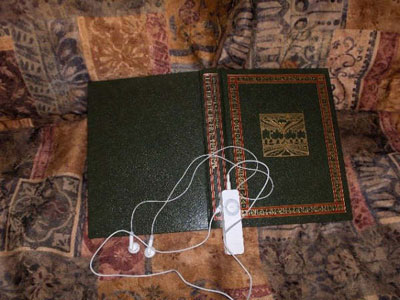All Nonfiction
- Bullying
- Books
- Academic
- Author Interviews
- Celebrity interviews
- College Articles
- College Essays
- Educator of the Year
- Heroes
- Interviews
- Memoir
- Personal Experience
- Sports
- Travel & Culture
All Opinions
- Bullying
- Current Events / Politics
- Discrimination
- Drugs / Alcohol / Smoking
- Entertainment / Celebrities
- Environment
- Love / Relationships
- Movies / Music / TV
- Pop Culture / Trends
- School / College
- Social Issues / Civics
- Spirituality / Religion
- Sports / Hobbies
All Hot Topics
- Bullying
- Community Service
- Environment
- Health
- Letters to the Editor
- Pride & Prejudice
- What Matters
- Back
Summer Guide
- Program Links
- Program Reviews
- Back
College Guide
- College Links
- College Reviews
- College Essays
- College Articles
- Back
Lewd Literature
“Ashish!” My mom’s voice disturbs the relaxed ambience of our living room as it pierces the air, penetrating down from the kitchen above.
“Yeah?”
“Get away from the TV now! What are you watching anyway?”
“South Park. It’s really funny and it pertains to today’s problems.”
“Jesus! What did I tell you about that crap? It doesn’t teach lessons! It’s just stupid disgusting jokes: brain candy. Where do you think you’ll be in twenty years if you watch that stuff? I’ve been telling you for years: you have to read intelligent literature in order to improve your writing and vocabulary.”
“Aw, come on mom’
“Don’t even talk about it! Tonight we’re going to start listening to the classics. Chaucer will do nicely for starters. We can begin in the car on the way to your Judo practice.”
Two hours later, there I was. Stuck in the car, forced to listen to at least 45 minutes of “great literature” from the CD my Mom had so proactively bought for me the previous Christmas as a gift to “improve your SAT scores.”
There was no escape, and I had to concentrate, because there were bound to be follow-up questions.
Predictably, she prefaced the tales with “Now listen to how a true master of prose writes.”
Despite the threat of retribution for lacking interest, I was not very enthusiastic as The Canterbury Tales began, believing that outdated stories of Middle England would hold no interest to my enjoyment-craving mind. The tales began in stately enough fashion with The Knights’ Tale of medieval chivalry, but then, contrary to my expectations of staid, romantic prose, the pace picked up with “The Miller’s Tale” of bed-hopping students snuggling up to different partners throughout the night, with injuries later inflicted by a red hot poker on a bare bottomed young man exhaling noxious fumes into the night -- farting, that is. Now I was alert and attentive to every word issued by the bawdy narrator. Phrases I had thought were taboo in great literature were spewing forth in multitudes. More scenes of lewd sex and base treachery flowed through my mind from this one tale of church corruption than I would have been able to find if I had watched twenty four episodes of any modern TV show, South Park included.
And this wasn’t all! Even more dastardly stories followed, such as “The Merchants Tale” which depicts illicit out-of-wedlock sex up in a tree as an aging husband is cuckolded and deceived in front of his own eyes.
Further delving into literary classics reveals that Chaucer is far from being the only famous author to use base humor as a device to entertain and educate. Throughout the ages, men we hail as masters of the art of literature have riddled their works with vulgar words, phrases, and stories in order to appeal to a wider audience. To name but a few, William Shakespeare, Moliére, Voltaire, Mark Twain and Tom Sharpe, were masters of this dramatic art.
Shakespeare is probably the best known of all English authors. His numerous works are widely read by people of all ages and are used in schools as examples to students of outstanding writing, despite the fact that he was probably the most accomplished bawdy raconteur of his day. Shakespeare did not only write for the upper class of 16th and 17th century England: he pitched his plays to suit the interest and humor the “groundlings” that attended the Globe Theatre. The Merry Wives of Windsor and A Midsummer Night’s Dream are classic examples of such tomfoolery.
Another European author who incorporated base characters in his works was Moliére. For example, he incorporated lewd allusions to depraved behavior into his play Tartuffe to attract the attention of his audience and caution them of the consequences of deceitful behavior.
Bawdy literature was not confined to renaissance Europeans. In the 19th century Mark Twain’s novels, including The Adventures of Huckleberry Finn and A Connecticut Yankee in King Arthur’s Court, incorporate low humor and sarcasm to portray his ideas. A few decades later Evelyn Waugh used similar humor to poke fun at the ruling class in novels such as Scoop and Black Mischief. With a more contemporary writer such as Tom Sharpe the levels of depravity are on a level with Chaucer, showing that such humor never goes out of fashion.
Just like modern TV shows, great authors have and continue to use scenarios that are attractive and funny to the majority of the population in order to teach moral lessons. Indeed, these authors were but the South Park’s script writers of their day.

Similar Articles
JOIN THE DISCUSSION
This article has 0 comments.
